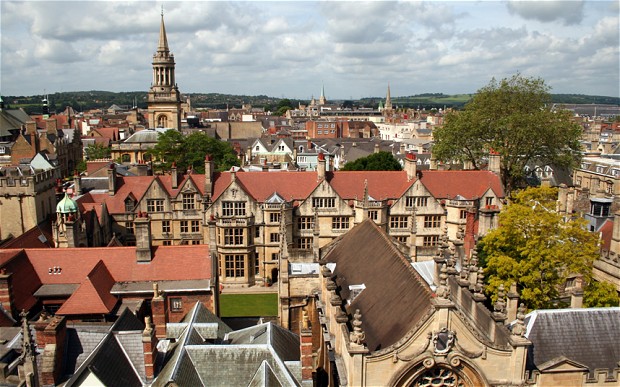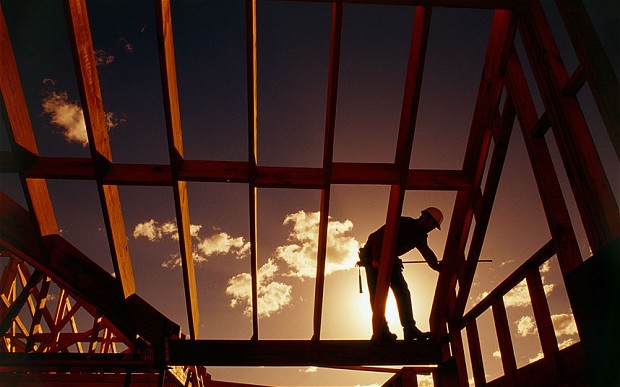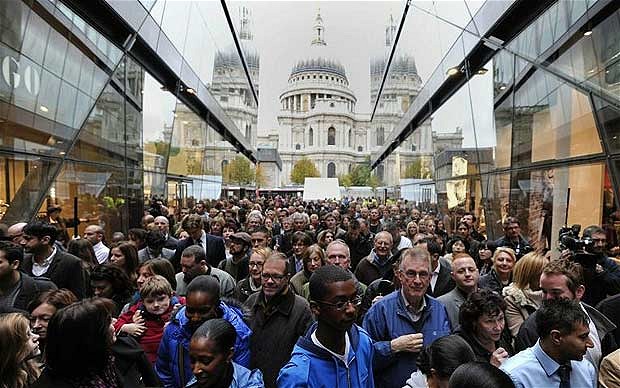595: Investing Close to Home - Opportunities
03-02-2017
PropertyInvesting.net team
Investing Close to Home: Its normally best to invest in property close to where you live close to your home for the following reasons:
If letting agents and/or tenants know you live locally, they are more likely to act promptly on things, pay their rent on time and are less likely to mess your around
You have more direct control over your investments
You are close by in event of an emergency
You can get better deals with contractors locally
You can wait and seize on opportunities by monitoring locally and snapping up bargains
Your local knowledge of business, areas, where jobs are being creating and where areas are improving is often helpful in selecting the best investment property
You can do handyman, DIY and other work yourself on your property to save money for instance cleaning and decorating
You might be able to find tenants yourself and let the property out directly therefore saving on letting fees
Depressed Area: The problem with investing locally could be that you live in a depressed area where property prices are declining and unemployment is rising, so in such an instance, it would be advisable to look further afield. Another disadvantage about having local properties and tenants is you might not want the tenants to easily be able to contact you, or knock on your door. Having tenants complaining on your doorstep would of course be a highly stressful incident for most landlords. You may even feel threatened by some types of tenants being so close by.

Best in Boom Town: If you live in a booming city like London, Oxford, Cambridge or Salford-Manchester - you can of course capitalise on high demand, high yields and high capital value increases. Re-development opportunities for large properties in such areas are exceptional for instance you might be able to convert a 3 bedroomed terrace house with an unconverted loft and basement into a property with four flats/studios and achieve exceedingly high rents a very lucrative opportunity.
How Can I Add Value: As a property investor, wherever you go you need to constantly ask yourself the question what can I do to add value. For instance, building a garage might cost £15,000 but add £30,000 in value and hence have a return on investment of 100% - you double your money. But building a conservatory might cost £15,000 and only add £8,000 to the value of your property this destroys a massive £7,000 whilst being a risky building venture.
Loft Conversion: A loft conversion, particularly in London is normally a winner wit h regard to value creation. It might cost around £40,000 and add £80,000 in value and if you rent the loft out as a studio in London, it might rent for £750 a month, particularly if it has a separate WC and shower, plus small kitchenette area.
h regard to value creation. It might cost around £40,000 and add £80,000 in value and if you rent the loft out as a studio in London, it might rent for £750 a month, particularly if it has a separate WC and shower, plus small kitchenette area.
Basement Conversion: Converting a basement in most areas in northern England is likely to destroy value it might cost £80,000 and add £70,000 in value. However, in West London converting a basement might cost £110,000 but the flat would be worth around £340,000 once completed and hence you would almost triple your money on the initial investment.
Self-Build: Building a home from scratch can be an extremely lucrative project, but there are many pitfalls not least getting planning permission, then dealing with building controls, and succ essfully building the property to the desired and regulatory standards. Most mortgage companies will not lend on self-build properties so if you have cash, it can be a successful way of making big returns, but it will take time, is high risk, and be a huge effort even if you are just the overall project manager. Finding a suitable piece of building land, then getting planning permission with all the Nimbys complaining is the first big step. Then its the design, tendering, selecting a builder who you can trust, then having the home successfully built on budget is a giant risk. But if all these things come together you can double your money in about 12 months from start to finish, if you have time and can successfully manage the whole process. In southern England, if you buy a building plot for say £80,000 then manage to build a 3 bedroom home for £130,000 its likely to be worth around £380,000 after other costs you might have made around £160,000 on paper.
essfully building the property to the desired and regulatory standards. Most mortgage companies will not lend on self-build properties so if you have cash, it can be a successful way of making big returns, but it will take time, is high risk, and be a huge effort even if you are just the overall project manager. Finding a suitable piece of building land, then getting planning permission with all the Nimbys complaining is the first big step. Then its the design, tendering, selecting a builder who you can trust, then having the home successfully built on budget is a giant risk. But if all these things come together you can double your money in about 12 months from start to finish, if you have time and can successfully manage the whole process. In southern England, if you buy a building plot for say £80,000 then manage to build a 3 bedroom home for £130,000 its likely to be worth around £380,000 after other costs you might have made around £160,000 on paper.
Investment Criteria: Now just a few ideas about UK areas that are good to invest in. Firstly, a few criteria you can use to assess an area:
a few criteria you can use to assess an area:
New businesses and jobs moving in
Gentrification and regeneration taking place
Good schools both state and public/private improving trend
Close proximity to Universities
New infra-structure being built rail, road, tube, buses, trams, cycle lanes
New shops-retail
New arts/cultural or tourist attractions
Good area for holiday homes or second homes
Shortage of homes being built
Good rental demand
Increasing populations
No noise/pollution from airports quiet side streets
Reducing crime levels
Private sector finance and/or technology jobs
Hotspots: Some areas that tick all the boxes are fast regenerating areas like Shoreditch, Forest Gate and Hackney in London. Other areas are those to be positively impacted from Crossrail such as: Whitechapel-Shoreditch, Acton, Abbey Wood, Ealing, Paddington, Tottenham Court Rd, West Drayton, Maid enhead, Reading, Forest Gate and Stratford. We particularly like Shoreditch because of the booming high-tech start-up businesses that will prosper and grow in years to come with rich young families moving in. A real growth hub.
enhead, Reading, Forest Gate and Stratford. We particularly like Shoreditch because of the booming high-tech start-up businesses that will prosper and grow in years to come with rich young families moving in. A real growth hub.
Population Boom: Areas with booming populations are Stratford, Forest Gate, Bow and Canning Town plus Oxford and Cambridge. In the latter two cities, building cannot keep pace with demand. Bristol is another boom area, along with Bath. There is a shortage of rental properties in Southampton whilst property prices are quite reasonable worth considering.
Dyson Hullavington: On the new jobs front one of the best areas has got to be Hullavington in Wiltshire where James Dyson is investing a gigantic £2.5 billion in his technology company by converting the old airfield close to this village just north of the M4, between Bath and Swindon, and on the edge of the beautiful Cotswolds. Lots of new high paid jobs are bound to send the property prices skyrocketing and rental demand from professionals will of course be very high in the next few years, along with demand from builders. Has to be a winner!
Brexit Distraction: Finally, just a quick word on Brexit. You may have noticed that property prices have hardly been affected by Brexit. There are a few reasons for this. Firstly Brexit uncertainties are keeping interest rates low. Then Sterling crashed by 20% which means foreign investors are still snapping up properties. The Brexit uncertainties ha ve also curtailed building levels of building are dropping. Then high stamp duty and taxes are preventing people from moving, so there is a dearth of properties on the market. Far from the house price crash predicted by Osbourne, prices have motored on quite nicely. The property declines in West London set in before the Referendum because of the gigantic punitive stamp duty increases which will of course lead to lower tax returns as levels of prime home sales drop dramatically. Another failed tax policy with unintended but highly predictable consequences. Longer term, the -13% decline in Chelsea property prices should actually be seen as an opportunity, in five years time we believe they will be far higher again.
ve also curtailed building levels of building are dropping. Then high stamp duty and taxes are preventing people from moving, so there is a dearth of properties on the market. Far from the house price crash predicted by Osbourne, prices have motored on quite nicely. The property declines in West London set in before the Referendum because of the gigantic punitive stamp duty increases which will of course lead to lower tax returns as levels of prime home sales drop dramatically. Another failed tax policy with unintended but highly predictable consequences. Longer term, the -13% decline in Chelsea property prices should actually be seen as an opportunity, in five years time we believe they will be far higher again.
UK to Boom in 2½ Years Time: Whilst everyone is worrying about Brexit and Trump all the canny property investors are busy doing conversions, seeking out bargains, adding value and generally making money. So this is our steer be action focussed, go out and make money and dont worry too much about Brexit. Its more of a distraction politics in play than anything else. We are pretty sure that in 3 years time, once this divorce is finalised, the UK economy unshackled from its unelected socio-liberal European neocon elite will start performing like Singapore, Switzerland and Norway, possibly as a re-defined tax haven rather than stagnating like Italy, Greece, France and Spain. Those people voted Brexit so we better get used to the idea and drive forward with pride and look forward to re-establishing old friendships with the commonwealth countries plus every other country on this planet that we have not been able to conduct a trade deal with because of the EU. Its also rather delusional to think that the result of a second referendum would be any different to the first if anything it would be more clear cut. Best be positive about it!
dont worry too much about Brexit. Its more of a distraction politics in play than anything else. We are pretty sure that in 3 years time, once this divorce is finalised, the UK economy unshackled from its unelected socio-liberal European neocon elite will start performing like Singapore, Switzerland and Norway, possibly as a re-defined tax haven rather than stagnating like Italy, Greece, France and Spain. Those people voted Brexit so we better get used to the idea and drive forward with pride and look forward to re-establishing old friendships with the commonwealth countries plus every other country on this planet that we have not been able to conduct a trade deal with because of the EU. Its also rather delusional to think that the result of a second referendum would be any different to the first if anything it would be more clear cut. Best be positive about it!
We hope this Newsletter has helped frame some ideas for your property investment portfolio given some insights. If you have an queries, please contact us by email at enquiries@propertyinvesting.net .

